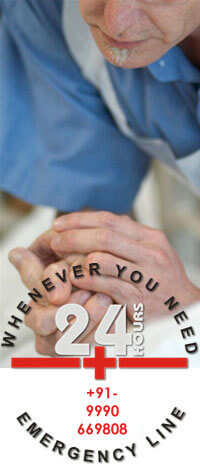Longer CPR boosts survival chance
On an average, spending 12 minutes performing the life saving chest compressions also called as CPR to relieve a patient of sudden cardiac arrest. But an increase in CPR to 30 minutes can actually save more patient of sudden cardiac arrest
CPR (cardiopulmonary resuscitation) can boost survival chances in several ways. When a person's heart stops beating, their brain and other vital organs can quickly become starved of oxygen, which can cause permanent damage or death. CPR helps to circulate blood and oxygen throughout the body, which can help to keep these vital organs alive until advanced medical care can be provided.
CPR can also help to restart the heart in some cases, particularly if the cardiac arrest is caused by an abnormal heart rhythm. The chest compressions performed during CPR can help to create a small amount of blood flow to the heart muscle, which can sometimes help to kick-start the heart's natural electrical impulses and restore a normal rhythm.
While CPR (cardiopulmonary resuscitation) is an important first aid technique to keep blood flowing to vital organs in a person who has suffered a cardiac arrest, the length of time spent performing CPR does not necessarily guarantee a better chance of survival.
However, it is generally recommended to continue performing CPR until trained medical professionals arrive on the scene and take over. The longer CPR is performed without interruption, the greater the chances of successfully resuscitating the person.
CPR Trainned person from 24x7 medical service a top first aid training institute in Delhi or CPR Practiosner are often unwilling to perform longer attempts of CPR those that can go upto 25 minutes or longer because they believe that if patients do not revive early on during sudden cardiac arrest, their overall prognosis is poor.
Coronary perfusion pressure is a critical and important to determine whether a return of free and spontaneous circulation will occur. Brain death starts four to six minutes after a person go through a sudden cardiac arrest. If no CPR is given, the American Heart Association estimates a persons chances of living decreases 7% to 10% per minute.
Researcher Scholars from the University of Michigan Health System also found patients who outlive with longer arrest times did not have substantially damage neurological function at discharge.
The research, led by cardiologist Zachary D Goldberger, an assistant professor at the University of Washington,said that each year nearly 300,000 patients those hospitalized will encountered with sudden cardiac arrest, with only half of those surviving the early cardiac arrest, and fewer than 20% surviving to discharge.
Goldberger said it's not surprising that there exists a wide variation among hospitals average length of resuscitation attempts, given there is no firm evidence to guide CPR practitioners when to stop their efforts once resuscitative efforts have started.
Our findings suggest an opportunity for improving care in this high-risk population. Overall, it may involve standardizing the time required for continuing resuscitation attempts prior to decisions regarding termination of efforts, Goldberger said.
After examining national data for more than 64,000 sudden cardiac arrest patients between 2000 and 2008, the researchers found that while most sudden cardiac arrest patients were successfully resuscitated after a short period of time, about 15% of sudden cardiac arrest patients who survived needed at least 30 minutes to achieve a pulse.
While the study implies that longer attempts CPR should be considered by medical professionals, U-M cardiologist Brahmajee K Nallamothu, and senior author says the research is only one piece of evidence to weigh during a sudden cardiac arrest case.
To get Online First Aid and CPR Training in Delhi India please visit Delhi Institue for First Aid and CPR Training


































